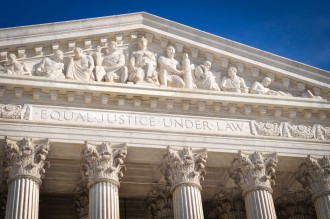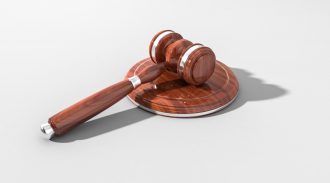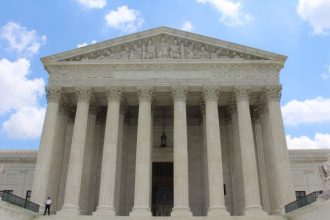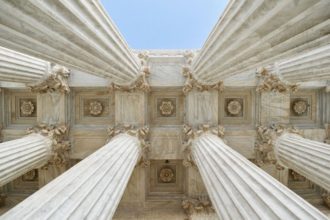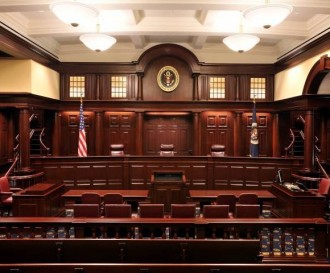
July 30, 2018
Federal Circuit: Expensive Attorneys Are Not “Expenses” Under Section 145
In Nantkwest, Inc. v. Iancu, the en banc Federal Circuit affirmed the judgment of the Eastern District of Virginia which denied the request from the United States Patent and Trademark Office (USPTO) for attorneys fees under Section 145.
To summarize, in 2013 the Patent Trial and Appeal Board (PTAB) affirmed the examiner’s rejection of Patentee’s application under Section 103. Under Section 145, the Patentee appealed the PTAB’s decision to the Eastern District of Virginia, which in turn granted the USPTO’s motion for summary judgment of obviousness. The USPTO then moved for reimbursement of its “expenses” under Section 145 (which provides that “all the expenses of the proceedings shall be paid by applicant”). More than 70% of the USPTO’s requested “expenses” consisted of attorneys fees for the two PTO attorneys and paralegal who worked on the case.
The District Court denied the USPTO’s motion with respect to attorneys fees. On Appeal, the Federal Circuit panel’s decision reversed the District Court and determined that the USPTO’s attorney’s fees were reimbursable expenses under Section 145.
In a rare procedure, the Federal Circuit voted sua sponte to hear the appeal en banc and vacated the panel’s judgment. The en banc appeal was focused on the single issue of “whether the panel ’correctly determine[d] that 35 U.S.C. § 145’s ‘[a]ll the expenses of the proceedings’ provision authorizes an award of the [PTO’s] attorneys’ fees.’”
The majority of the en banc Federal Circuit determined that attorneys fees were not reimbursable as “expenses” of the proceeding. Notably, the Federal Circuit determined that Section 145 is limited by the American Rule which provides that parties to litigation are responsible for their own attorneys fees, unless a “statute uses ‘specific and explicit’ language to depart from this rule.” The Court determined that Section 145’s recitation that “all expenses of the proceeding” “lacks the ‘specific and explicit’ congressional authorization to displace the American Rule.” The Court further noted the absence of any reference to attorneys fees or attorney compensation. At best, the “all expense” language is ambiguous, and ambiguity is not “specific or explicit.” The Court bolstered its decision based on an extensive analysis of statutory interpretations, legislative history, dictionary definitions and precedence.
The Court also chastised the USPTO for raising this argument pointing out that “it is unclear why it took the PTO more than 170 years to appreciate the statute’s alleged clarity and seek the attorneys’ fees that are statutorily mandated under its interpretation.” And for good measure, the Court noted “In addition to the parties’ briefs and argument, we received seven amicus briefs, none of which support the PTO’s position” (emphasis added).
The dissent noted that Section 145’s “all expenses” is broader than Section 285’s award of “attorneys fees.” According to the dissent, “expenses” is broad term which includes attorneys fees, and disagreed with the majority’s view that specific mention of “attorneys’ fees” in Section 285 indicates congressional intent to exclude “fees” from “expenses.” The dissent further disagreed with the majority’s distinction of Shammas, a trademark case which held that attorneys fees are reimbursable expenses under the identical language in 15 U.S.C. § 1073(b)(3).
The takeaway, for purposes of PTAB appeals to the District court, is that the PTAB’s fees are not a reimbursable expense for the PTO. Appeal to the district court has always been attractive in part because of the ability to raise new arguments and evidence in the district court (vs appeal to the Federal Circuit). The popularity of district court appeals has been tempered by the expenses provision. Now, since a party no longer has to worry about paying the PTO’s attorneys fees, it is possible that this decision leads to more district court appeals (though Nanktwest was the first time the PTO had demanded payment of its fees, so perhaps there will be little impact of Nanktwest). It will be interesting to see whether the Supreme Court will be asked to weigh in on the issue given the disparity of the meaning of “all expenses” in the Lanham Act vs. Section 145.
Here’s the scorecard for those keeping track:
En banc Decision
Majority: Judges Stoll*, Newman, Lourie, Moore, O’Malley, Wallach and Taranto
Dissent: Judges Prost*, Dyk, Reyna and Hughes
Absentia: Judge Chen
Panel Decision
Majority: Judges Prost*, Dyk
Dissent: Judge Stoll
*Asterisks indicates author of opinion.


































